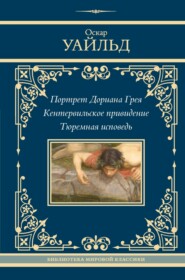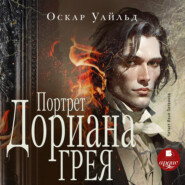По всем вопросам обращайтесь на: info@litportal.ru
(©) 2003-2025.
✖
Lord Arthur Savile's Crime; The Portrait of Mr. W.H., and Other Stories
Настройки чтения
Размер шрифта
Высота строк
Поля
‘Dear Lady Windermere,’ cried the Marchioness of Jedburgh, ‘do let Mr. Podgers stay here a little longer. He has just told me I should go on the stage, and I am so interested.’
‘If he has told you that, Lady Jedburgh, I shall certainly take him away. Come over at once, Mr. Podgers, and read Lord Arthur’s hand.’
‘Well,’ said Lady Jedburgh, making a little moue as she rose from the sofa, ‘if I am not to be allowed to go on the stage, I must be allowed to be part of the audience at any rate.’
‘Of course; we are all going to be part of the audience,’ said Lady Windermere; ‘and now, Mr. Podgers, be sure and tell us something nice. Lord Arthur is one of my special favourites.’
But when Mr. Podgers saw Lord Arthur’s hand he grew curiously pale, and said nothing. A shudder seemed to pass through him, and his great bushy eyebrows twitched convulsively, in an odd, irritating way they had when he was puzzled. Then some huge beads of perspiration broke out on his yellow forehead, like a poisonous dew, and his fat fingers grew cold and clammy.
Lord Arthur did not fail to notice these strange signs of agitation, and, for the first time in his life, he himself felt fear. His impulse was to rush from the room, but he restrained himself. It was better to know the worst, whatever it was, than to be left in this hideous uncertainty.
‘I am waiting, Mr. Podgers,’ he said.
‘We are all waiting,’ cried Lady Windermere, in her quick, impatient manner, but the cheiromantist made no reply.
‘I believe Arthur is going on the stage,’ said Lady Jedburgh, ‘and that, after your scolding, Mr. Podgers is afraid to tell him so.’
Suddenly Mr. Podgers dropped Lord Arthur’s right hand, and seized hold of his left, bending down so low to examine it that the gold rims of his spectacles seemed almost to touch the palm. For a moment his face became a white mask of horror, but he soon recovered his sang-froid, and looking up at Lady Windermere, said with a forced smile, ‘It is the hand of a charming young man.
‘Of course it is!’ answered Lady Windermere, ‘but will he be a charming husband? That is what I want to know.’
‘All charming young men are,’ said Mr. Podgers.
‘I don’t think a husband should be too fascinating,’ murmured Lady Jedburgh pensively, ‘it is so dangerous.’
‘My dear child, they never are too fascinating,’ cried Lady Windermere. ‘But what I want are details. Details are the only things that interest. What is going to happen to Lord Arthur?’
‘Well, within the next few months Lord Arthur will go a voyage – ’
‘Oh yes, his honeymoon, of course!’
‘And lose a relative.’
‘Not his sister, I hope?’ said Lady Jedburgh, in a piteous tone of voice.
‘Certainly not his sister,’ answered Mr. Podgers, with a deprecating wave of the hand, ‘a distant relative merely.’
‘Well, I am dreadfully disappointed,’ said Lady Windermere. ‘I have absolutely nothing to tell Sybil to-morrow. No one cares about distant relatives nowadays. They went out of fashion years ago. However, I suppose she had better have a black silk by her; it always does for church, you know. And now let us go to supper. They are sure to have eaten everything up, but we may find some hot soup. François used to make excellent soup once, but he is so agitated about politics at present, that I never feel quite certain about him. I do wish General Boulanger would keep quiet. Duchess, I am sure you are tired?’
‘Not at all, dear Gladys,’ answered the Duchess, waddling towards the door. ‘I have enjoyed myself immensely, and the cheiropodist, I mean the cheiromantist, is most interesting. Flora, where can my tortoise-shell fan be? Oh, thank you, Sir Thomas, so much. And my lace shawl, Flora? Oh, thank you, Sir Thomas, very kind, I’m sure’; and the worthy creature finally managed to get downstairs without dropping her scent-bottle more than twice.
All this time Lord Arthur Savile had remained standing by the fireplace, with the same feeling of dread over him, the same sickening sense of coming evil. He smiled sadly at his sister, as she swept past him on Lord Plymdale’s arm, looking lovely in her pink brocade and pearls, and he hardly heard Lady Windermere when she called to him to follow her. He thought of Sybil Merton, and the idea that anything could come between them made his eyes dim with tears.
Looking at him, one would have said that Nemesis had stolen the shield of Pallas, and shown him the Gorgon’s head. He seemed turned to stone, and his face was like marble in its melancholy. He had lived the delicate and luxurious life of a young man of birth and fortune, a life exquisite in its freedom from sordid care, its beautiful boyish insouciance; and now for the first time he became conscious of the terrible mystery of Destiny, of the awful meaning of Doom.
How mad and monstrous it all seemed! Could it be that written on his hand, in characters that he could not read himself, but that another could decipher, was some fearful secret of sin, some blood-red sign of crime? Was there no escape possible? Were we no better than chessmen, moved by an unseen power, vessels the potter fashions at his fancy, for honour or for shame? His reason revolted against it, and yet he felt that some tragedy was hanging over him, and that he had been suddenly called upon to bear an intolerable burden. Actors are so fortunate. They can choose whether they will appear in tragedy or in comedy, whether they will suffer or make merry, laugh or shed tears. But in real life it is different. Most men and women are forced to perform parts for which they have no qualifications. Our Guildensterns play Hamlet for us, and our Hamlets have to jest like Prince Hal. The world is a stage, but the play is badly cast.
Suddenly Mr. Podgers entered the room. When he saw Lord Arthur he started, and his coarse, fat face became a sort of greenish-yellow colour. The two men’s eyes met, and for a moment there was silence.
‘The Duchess has left one of her gloves here, Lord Arthur, and has asked me to bring it to her,’ said Mr. Podgers finally. ‘Ah, I see it on the sofa! Good evening.’
‘Mr. Podgers, I must insist on your giving me a straightforward answer to a question I am going to put to you.’
‘Another time, Lord Arthur, but the Duchess is anxious. I am afraid I must go.’
‘You shall not go. The Duchess is in no hurry.’
‘Ladies should not be kept waiting, Lord Arthur,’ said Mr. Podgers, with his sickly smile. ‘The fair sex is apt to be impatient.’
Lord Arthur’s finely-chiselled lips curled in petulant disdain. The poor Duchess seemed to him of very little importance at that moment. He walked across the room to where Mr. Podgers was standing, and held his hand out.
‘Tell me what you saw there,’ he said. ‘Tell me the truth. I must know it. I am not a child.’
Mr. Podgers’s eyes blinked behind his gold-rimmed spectacles, and he moved uneasily from one foot to the other, while his fingers played nervously with a flash watch-chain.
‘What makes you think that I saw anything in your hand, Lord Arthur, more than I told you?’
‘I know you did, and I insist on your telling me what it was. I will pay you. I will give you a cheque for a hundred pounds.’
The green eyes flashed for a moment, and then became dull again.
‘Guineas?’ said Mr. Podgers at last, in a low voice.
‘Certainly. I will send you a cheque to-morrow. What is your club?’
‘I have no club. That is to say, not just at present. My address is – , but allow me to give you my card’; and producing a bit of gilt-edge pasteboard from his waistcoat pocket, Mr. Podgers handed it, with a low bow, to Lord Arthur, who read on it,
Mr. SEPTIMUS R. PODGERS
Professional Cheiromantist
103aWest Moon Street
‘My hours are from ten to four,’ murmured Mr. Podgers mechanically, ‘and I make a reduction for families.’
‘Be quick,’ cried Lord Arthur, looking very pale, and holding his hand out.
Mr. Podgers glanced nervously round, and drew the heavy portière across the door.
‘It will take a little time, Lord Arthur, you had better sit down.’
‘Be quick, sir,’ cried Lord Arthur again, stamping his foot angrily on the polished floor.
Mr. Podgers smiled, drew from his breast-pocket a small magnifying glass, and wiped it carefully with his handkerchief.
‘I am quite ready,’ he said.
CHAPTER II

















